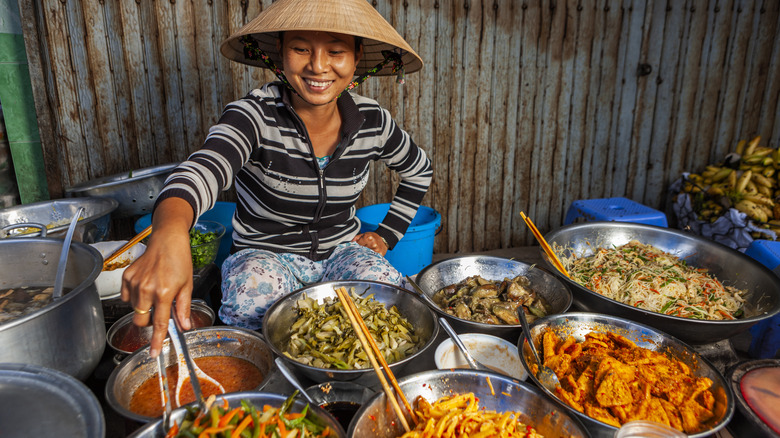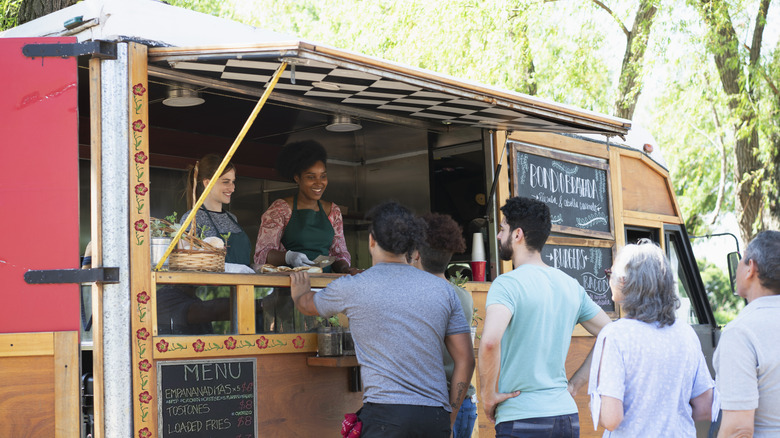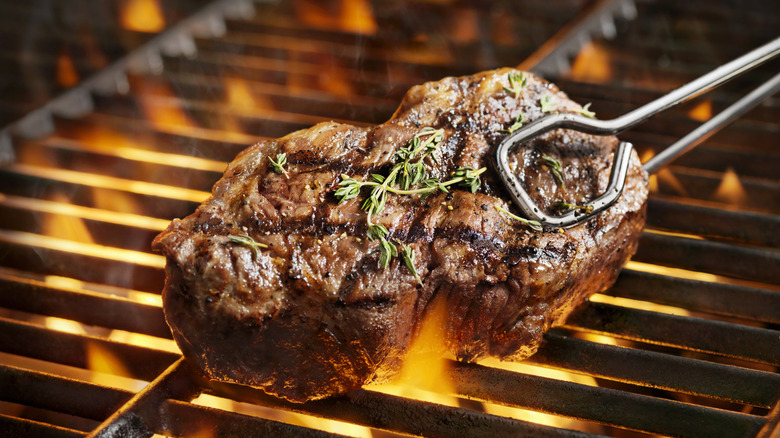How worried should you be about getting food poisoning while on vacation? Sadly, stomach upsets due to food and water are common in travelers. According to the BMJ Clinical Evidence, between 30% and 70% of international travelers develop diarrhea on a trip or after getting home. Little ruins a vacation faster than the runs.
However, we don’t want this to put you off trying incredible foods abroad. You probably already know some simple tips for avoiding food poisoning while traveling, like always opting for hot meals. Still, long-time traveler and European travel expert Rick Steves has some extra advice for staying healthy while on the road. “Unhealthy-looking restaurants” are to be avoided, Steves writes on his website, as is meat that looks undercooked. One of his best tips is to write the phrase “well done” in the local language to ensure your meats are cooked thoroughly. Steves also recommends avoiding prepared foods. This is excellent general advice, but we’ll go a little deeper.
Before we do, you might think you’re not very likely to get sick in Europe. Indeed, the BMJ writes that travelers to high-income destinations are less likely to get sick than those who visit countries in Africa, Asia, the Middle East, and South America. However, the World Health Organization reports that in Europe, 23 million people fall ill after eating unsafe food each year. Don’t be one of them!
Clean restaurants and hot foods

Now, let’s dive into Steves’ tips. What does he mean by “unhealthy restaurants”? Your first clue as to whether a restaurant has good hygiene standards starts from its exterior. Outdoor dining areas and windows should be clean and tidy, and the sidewalk should be free of trash. Once inside, check the floors, utensils, menus, and condiments. Finally, head to the bathroom — if that’s clean, the kitchen probably is, too.
If you can see inside the kitchen (or at a street stall), check if the chef is using utensils or wearing clean gloves and not using their bare hands. Additionally, make sure the person handling the money isn’t also touching the food, even if they’re wearing gloves. We’re sure you don’t need us to tell you that physical cash is dirty.
Next up, Steves’ clever tip about showing a card with “well done” when ordering meat is a good one. Heat kills germs that can cause illnesses, so food should be piping hot when you get your chops around it. That’s not just meat, but any dish you’re eating. Food cooked but then allowed to cool is a prime candidate for causing food poisoning. Buffets are good examples of places where food temperatures can fall into danger zones, which is another reason to skip the buffet wherever you are.
More tips to avoid food poisoning

We think you’re already aware of food poisoning avoidance techniques, such as how to know whether it’s safe to drink tap water in a foreign country and eating where the locals eat. One poster in Reddit’s r/travel forum takes the second tip further. They suggest not having a meal in a place that has been in a guidebook for a few years. These places probably don’t need to cater to locals anymore and may drop their hygiene standards when their only clients are just passing through. As well as where you eat, you should also think about when you eat. Several posters in the same Reddit forum recommend eating during local mealtimes to ensure food hasn’t been sitting out for a long time.
Another tip that often flies under the radar but could genuinely save your stomach is eating only thick-skinned fruit, Rick Steves mentions. Fruits you can peel, like bananas and oranges, tend to be safe. This is excellent advice for when traveling outside Europe. Finally, if you’re extra cautious, consider bringing your own utensils or washing the ones you’re given in a restaurant. You can carry chopsticks and some baby wipes to clean off dirty utensils. Finally, you might want to look at yourself before blaming someone else for your food poisoning. Always wash your hands before eating. Soap and water are best, but hand sanitizer is helpful.

